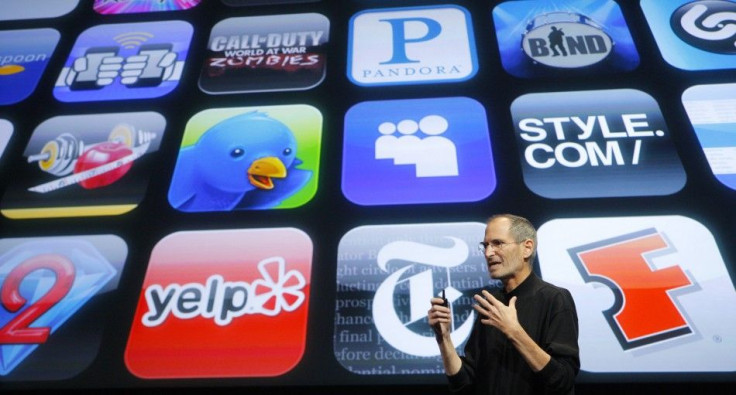Invisible War Wounds: Yes, There's an App for That

For years, war veterans have had to turn to traditional methods of therapy when the terrifying battlefield memories come rushing back. But now, new-age technology designed to assist with the coping of post-traumatic stress and brain injuries have been turned into mobile phone applications, or "apps."
"I'm not going to lie - when this came out, we sort of wanted to slam it," Staff Sgt. Meg Krause said of her group of veterans. "But it surprised us and has been a phenomenal tool," the 29-year-old reservist and medic, who has had counseling for post-traumatic stress disorder, said.
A half-dozen apps with names like "T2 MoodTracker," "PTSD Coach" and "Breathe2Relax" have been developed by the Pentagon and Veterans Affairs Department, but are not meant to diagnose illness or replace psychiatric counseling. Rather, the apps provide information about what the military calls "invisible wounds" of wars - in Iraq and Afghanistan - and teaches how to manage those symptoms.
All of the apps save for the MoodTracker, which allows users to rate their feelings - worthlessness, happiness, loneliness - and keep a record of them over time, were created by the Pentagon.
The latest May-released app, the PTSD Coach, was the result of a joint effort by the Pentagon and Veterans Affairs. This helps to self-assess symptoms by giving step-by-step instructions in muscle relaxation and breathing, helping users create a phone list of people to call when they need support and helps vets contact the National Suicide Prevention Hotline in an emergency.
"Someone who's struggling ... all they have to do is pull out their smartphone or their iPhone and say, 'I can help myself,'" Krause said. "To know that there is something that I can pull out and watch, and it will help me go through my breathing techniques so I don't get to that crisis moment, I think is immensely important."
There is also an app for health care providers that include definitions, causes and severity ratings for mild traumatic brain injury - or concussions - suffered by many troops from roadside bombs and other explosions. The hope is that the apps provide the encouragement needed for troops, vets and families to get professional help.
Krause served twice in Iraq and has worked for the "Real Warriors" campaign, a defense program in which service members tell their personal stories to encourage other troops to seek help.
As the free app downloads are anonymous, finding others to talk about using it has proven difficult, the Washington Post reported, as the preservation of privacy is one of the biggest selling points for a military population that is unwilling to showcase personal issues for fear of appearing weak.
"Engaging veterans on their own terms is especially crucial in the area of mental health," said Dr. Sonja Batten, a clinical psychologist who works on national mental health policy for the VA.
© Copyright IBTimes 2024. All rights reserved.




















